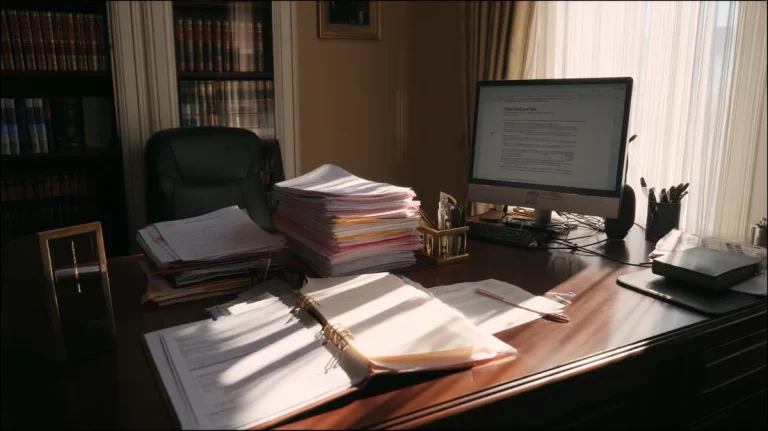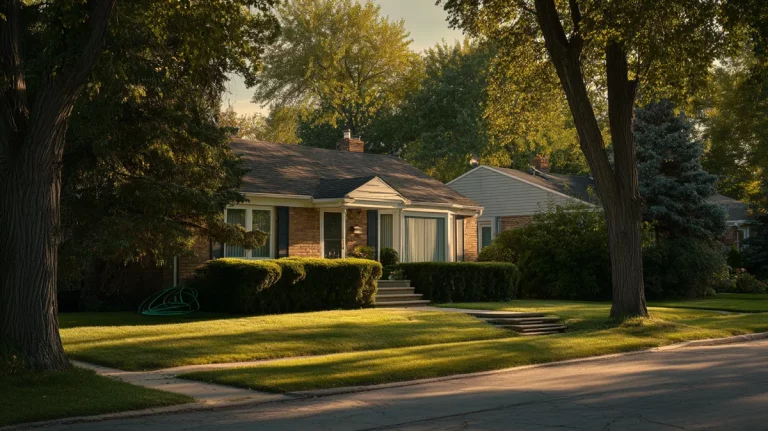Ancillary probate is the extra round of court work that pops up when someone passes away owning real property or other sizable assets in a state (or country) that isn’t the place they called home.
It lives alongside the primary probate in the decedent’s home state, and it exists so local courts can make sure title to the property is cleared under their own state law before any heir, beneficiary, or creditor touches it.
While ancillary probate is an additional layer in the overall probate process, it’s still part of the same legal journey designed to settle debts, protect rights, and get money or property into the right hands.
Understanding Ancillary Probate
If the decedent resided in Massachusetts but kept a vacation cabin in Colorado, that Colorado land sits outside the Massachusetts court’s legal jurisdiction.
A separate Colorado judge needs to bless the transfer so the county clerk can record a clean deed. That secondary effort is called ancillary probate.
In a nutshell, the primary probate proceeding opens first in the home state (sometimes called domiciliary probate), and then an ancillary probate proceeding in order to handle the out-of-state property is filed where that property is located.
Why does this matter?
Real property lines, community property rules, and creditor notice periods vary wildly from one place in the state to the next, so each court insists on its own paperwork.
Ancillary probate differs from regular probate mainly because it relies on certified copies of probate documents and letters testamentary issued by the primary probate court, and it tends to be narrower in scope, and it’s usually limited to the land, mineral rights, or bank accounts sitting in that other state.
The Ancillary Probate Process
The executor or personal representative first opens the estate back home, gathers the assets within that jurisdiction, and secures letters testamentary.
Once the primary probate is opened and the judge appoints an executor to take charge, that executor heads to the place in the state where the out-of-state property is located and files a petition for ancillary administration. Most clerks just need the certified copy of the will, the letters, and a short accounting of the owned property.
Ancillary Probate Timeline
Timelines vary: probate in Texas can wrap up an ancillary estate in roughly two to four months if no one objects, while probate in California may stretch to six months thanks to crowded dockets and notice periods.
The executor leans on experienced probate attorneys licensed in each state to keep things moving and to meet state-specific publication rules so every creditor gets proper notice.
Once the judge signs off, title to the property held out of state can be conveyed, sold, or distributed to the beneficiary named in the will.
Challenges of Ancillary Probate
Ancillary probate might sound like just another form, but it often drags families through unfamiliar courts and piles on costs none of them expected during an already stressful time.
Different filing fees, waiting periods, and legal quirks add layers of frustration, especially when an heir must fly back and forth to sign paperwork or hunt down a county clerk who only works Tuesdays.
Additional Costs and Fees
Every separate probate means fresh court costs, publication fees, and attorney retainers.
In many counties, the filing fee alone tops three hundred dollars, and that doesn’t include recording the new deed or paying a local appraiser to value the property owned. If creditors show up late or someone contests the valuation, those charges climb fast.
Legal Complexity Across States
State law conflicts can catch an executor off guard. Community property rules in Texas treat a spouse’s share differently from the way California views separate property.
The probate proceeding may have to untangle whether jointly owned lake homes fall under joint tenancy with right of survivorship or simple tenancy in common.
One wrong assumption about the title to the property can send the whole case back to square one.
Delays in Estate Settlement
Because ancillary probate is an additional process, assets locked in the secondary state stay frozen until that judge signs off. That can block the sale of real property needed to pay taxes or leave an heir waiting on rental income.
If a creditor files late claims or the executor misses a publication deadline, the delay snowballs.
How to Avoid Ancillary Probate
Families often ask whether there’s a way to skip the hassle altogether. While you can’t always dodge court oversight, smart planning reduces the need for ancillary probate or at least shrinks its footprint.
Using a Living Trust
Placing out-of-state assets into a living trust during your lifetime shifts ownership from you personally to the trust. When you die, the successor trustee can distribute the property located outside your home state without going through probate.
Many folks use this strategy to avoid probate altogether for vacation homes in Florida or timber acreage in Georgia.
Joint Ownership of Property
Jointly owned assets held as joint tenancy with right of survivorship automatically pass to the surviving owner.
That survivorship feature keeps the title out of probate court, though it only works if you’re comfortable giving the co-owner equal rights while you’re alive.
Transfer-on-Death Deeds
Roughly half the states now allow a transfer-on-death deed, sometimes called a beneficiary deed, that names who inherits the land once the owner dies.
Because the deed takes effect only at death, you keep control during life and still avoid ancillary probate as long as state law recognizes the form.
Business Succession Planning
If you have an LLC that owns property in a state, building a clear operating agreement or buy-sell plan can prevent a court from stepping in.
Title stays with the company rather than the individual owner, cutting down the need for secondary probate.
Final Thoughts on Ancillary Probate
Ancillary probate can feel like a bureaucratic detour, but it’s really just the local court making sure everyone obeys its rules before property changes hands.
An estate plan that factors in where the decedent owned real estate, bank accounts, or mineral rights saves time and money. Talk with a probate attorney in every state where property is located so you know whether a simple living trust, joint ownership, or a transfer-on-death deed will work for you.
The goal is clear: distribute the property smoothly and keep heirs from wrestling with paperwork scattered across the map.
FAQ’s About Ancillary Probate
Often no. Many banks honor a certified copy of letters testamentary, especially when accounts are small, but some institutions insist on a local order. Always ask the branch manager in the state where the assets within that account sit.
Technically an executor can appear pro se, yet most states restrict non-lawyers from practicing law. Because each filing has strict county clerk rules, retaining counsel familiar with the ancillary probate process speeds things up and shields you from accidental missteps.
It’s allowed. The executor appointed in the primary probate can delegate duties to a co-executor or ancillary personal representative in the secondary state. Clear communication keeps filings consistent so the ancillary proceeding doesn’t contradict the primary probate proceeding.
Deadlines vary. California gives creditors four months after probate is opened, while Florida probate law allows three months from publication. Missing those windows usually bars late claims, but litigation can reopen the matter if new assets emerge years later.






